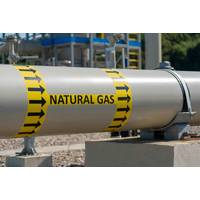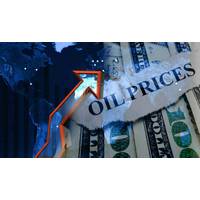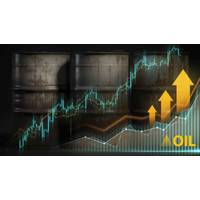Coal Row Takes Shine off Germany's Green Image
Germany hosts G7 summit on June 7-8; Merkel's credibility hinges on fulfilling own targets.
Germany's clean energy drive earned it a reputation as a green leader but a domestic row over coal has highlighted the challenge of balancing economic and environmental demands and threatens its ability to lead by example.
Angela Merkel, once dubbed the "climate chancellor", hopes to encourage the Group of Seven industrial nations to commit to tough goals to cut greenhouse gases at a June 7-8 summit in Bavaria before a larger year-end United Nations climate meeting in Paris.
In charge of Europe's largest economy but also its biggest emitter of CO2, she wants to promote the 'Energiewende', a policy that backs cleaner energy and a move away from fossil fuels and nuclear power.
But stalled projects, including her government's attempt to impose penalties on old, highly polluting coal plants, have put Germany's 2020 goal of cutting greenhouse gas emissions by 40 percent compared to 1990 at risk.
"Germany cannot get around the truth that in order not to fail its climate commitments it has to reduce its emissions from its enormous fleet of lignite coal technology," said Kumi Naidoo, executive director of Greenpeace International.
Aware it was on course to miss the 2020 target, the government approved a climate package last December to put it back on track. This included plans to force coal operators to slash their emissions by at least 22 million tonnes by 2020, equivalent to shutting about eight coal plants.
But a coal levy aimed at achieving those cuts, proposed by Sigmar Gabriel, economy minister and leader of Merkel's junior coalition partner, the Social Democrats (SPD), led to protests by coal miners last month and a backlash from the industry.
Union IG BCE says it could put up to 100,000 jobs at risk while Germany's second biggest utility RWE said the levy would mean immediate closure for the majority of its lignite mines and lignite-fired power stations.
Bowing to those industry concerns, the economy ministry is now proposing softening the CO2 emissions cuts for coal-fired power plants to 16 million tonnes, according to a ministry document seen by Reuters.
A final decision has been delayed until the summer, and risks undermining Merkel's efforts to convince others that it is possible to cut CO2 emissions and grow the economy.
Only a third of experts from 35 countries surveyed by the World Energy Council believe the 'Energiewende' could serve as a blueprint for the world. In addition, three-quarters think the transition away from nuclear and fossil fuels will weaken Germany's economy in the short-term.
Germany generated more than a quarter of its electricity from renewable sources - such as wind and solar power - last year. But at the same time the phase-out of nuclear power has increased its reliance on brown coal, the dirtiest of all energy sources, which is cheaper than low-emission gas-powered plants.
Its brown coal addiction meant CO2 emissions actually rose slightly in 2012 and 2013 and Germany still emits more CO2 per capita than the European Union average.
"If Merkel and Gabriel aren't able to repair the market, reduce the share of coal and therefore emissions, the credibility for other nations to be convinced to go for stronger climate targets will be very low," said Claudia Kemfert, energy economist at the DIW in Berlin.
CAR CHANCELLOR
Merkel, who has made climate a key issue of her G7 presidency this year, has remained conspicuously silent in the coal debate so far, leaving the SPD, who hold both the energy and environment portfolios, to deal with the opposition.
A scientist by training, she reversed course on nuclear power after the 2011 Fukushima disaster in Japan. As environment minister in the mid-1990s, she pushed for a precursor to the Kyoto Protocol on cutting CO2 emissions.
A decade later, she used her clout as leader of Europe's largest economy to seal a 2007 European Union commitment on reducing greenhouse gases and boosting energy efficiency and
renewables.
Then, at her last outing as host to the world's leading industrial nations, in 2007, Merkel convinced former U.S. President George W. Bush to make a firm pledge to tackle climate change.
But when the financial crisis struck in 2008, she prioritised the economy. Some climate activists in Berlin and Brussels called Merkel the 'car chancellor' after she lobbied to scrap an EU cap on car emissions over fears it could hit jobs at big German automakers.
The latest row over coal again underscores the dilemma of whether to stick to climate commitments while safeguarding the energy supply and protecting industry.
"The economy ministry's proposals are eroding fair competition in Europe's electricity market at the expense of German coal-powered stations," said Eric Schweitzer, president of Germany's DIHK Chambers of Commerce.
"The inevitable increase in electricity prices will place an additional burden on the German economy and stunt the competitiveness of many companies."
Nevertheless, the green lobby is hoping that Merkel will push for a pledge to phase out fossil fuels by the middle of this century ahead of the Paris meeting, which aims to agree on a successor to the Kyoto Protocol.
"Like it or not, if we were to single out one leader in the world we have the greatest hope in, it would be Chancellor Merkel," said Greenpeace's Naidoo.
By Caroline Copley







